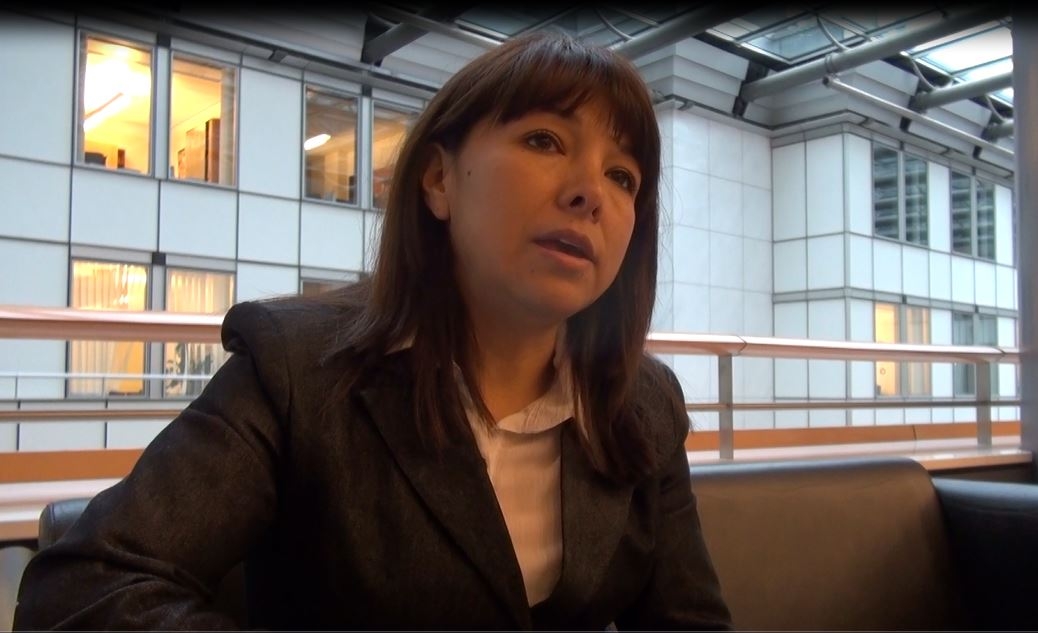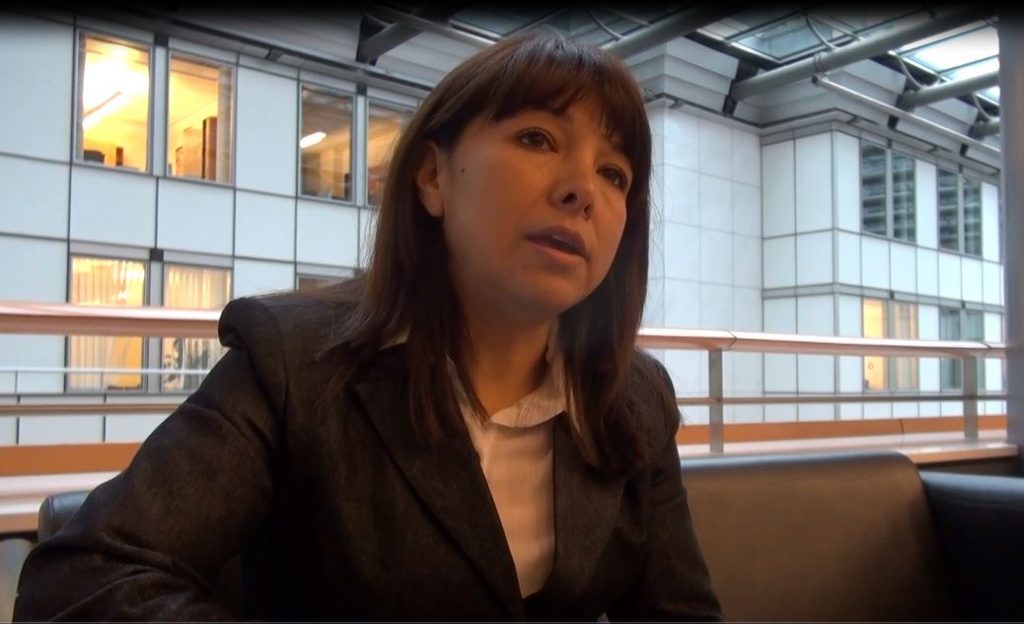
A conversation with Mirtha Vásquez, a lawyer with GRUFIDES in Cajamarca, Peru.
Every month this blog examines different aspects of gender equality. With the topic of human and environmental rights defenders at risk gaining prominence, we would like to address the connection between defenders and gender equality this month.
A couple of weeks ago, newspaper The Guardian in collaboration with the NGO Global Witness published worrying figures about environmental defenders. Worldwide almost four people were killed every week in 2017 in struggles against mines, plantations, poachers and infrastructure projects.
What are the issues that women defenders protecting the environment particularly face? What are the particular qualities that women bring to this mission? These were some of the questions buzzing in our heads.
Luckily we had someone ready to answer. Mirtha Vásquez, lawyer and director of GRUFIDES, a Peruvian NGO defending human rights and the environment in Cajamarca-Peru. Mirtha was in Brussels and meeting the European Parliament to raise awareness about the precarious situation of women environmental and human rights defenders. We didn’t miss the chance to catch up with her for an interview.
Mirtha started off by sketching the context in which she works. The omnipresent extractive industry disrupts the lives of local communities in many ways and is greatly opposed. A massive imbalance of power results in disproportionate demonstrations of aggressions against local people who oppose mining companies. This repression can take different forms according to the gender of the activist.
Women defenders, explained Mirtha, are one of the most vulnerable categories in the eco-territorial fight. Firstly, in a patriarchal society, women face repression, social stigma and discrimination. But there is more: women are particularly vulnerable to aggression. As home-makers and carers, they are the ones who do and are responsible for many domestic chores; their home and families depend on them. When they are attacked, the whole structure they hold up is threatened.
Mirtha works closely with Máxima Acuña, a farmer who opposed land expropriation in the controversial Yanacocha project. Máxima endured severe intimidation and aggression for defending her land against mining companies. Her struggles were recognised by the Goldman Environmental Prize she was awarded in 2016. Mirtha recalled how Máxima was willing to take up an unequal struggle against an extremely powerful company and even the government itself, and the serious consequences she suffered. The violence against her took various forms: “there was physical violence, there was emotional and psychological violence like ostracism and hate campaigns against her. She was discriminated against and there was even an attempt to remove her from the leadership role that she played. Her home, family and relationship were attacked.” said Mirtha. Targetting the core of her gender identity, she was denied the means to continue playing her role as a mother, as keeper of the home, as a productive person. Every form of denigration was used against her and she was denied any chance of developing as a human being.
Sadly, there are many similar stories with women as the protagonist, harshly attacked in the entirety of their life for their activism. Women however continue to make a fundamental contribution to environmental defence. Defending their land for them means defending a way of life, their family, their status as social and political beings and their role in the economy. Above all, women perceive this struggle as a fundamental fight to defend their dignity.
At the end of our conversation Mirtha pointed out how women act in solidarity with the environment and resources, as well as with the rest of society. Their struggle is not just against mining but also for alternatives to mining that demonstrate economic solidarity. “Buen Vivir” one of the post-extractivism scenarios also has solidarity at its core. We have come to the time, according to Mirtha, to move away from the mining model and buen vivir should be explored as a future alternative. She explained how people thought that exploiting resources like minerals would bring development, progress and income but that there are limits to this. “We’ve become dependent on mining so when it fails not only does the economy collapse but the entire State that depended on it collapses too” said Mirtha.
We are grateful to Mirtha for spending time talking to us about this topic that is clearly very close to her heart! For us, she is one of the many women whose contribution is vital to the struggle for our environment and we are grateful for her commitment to defend our Earth.

